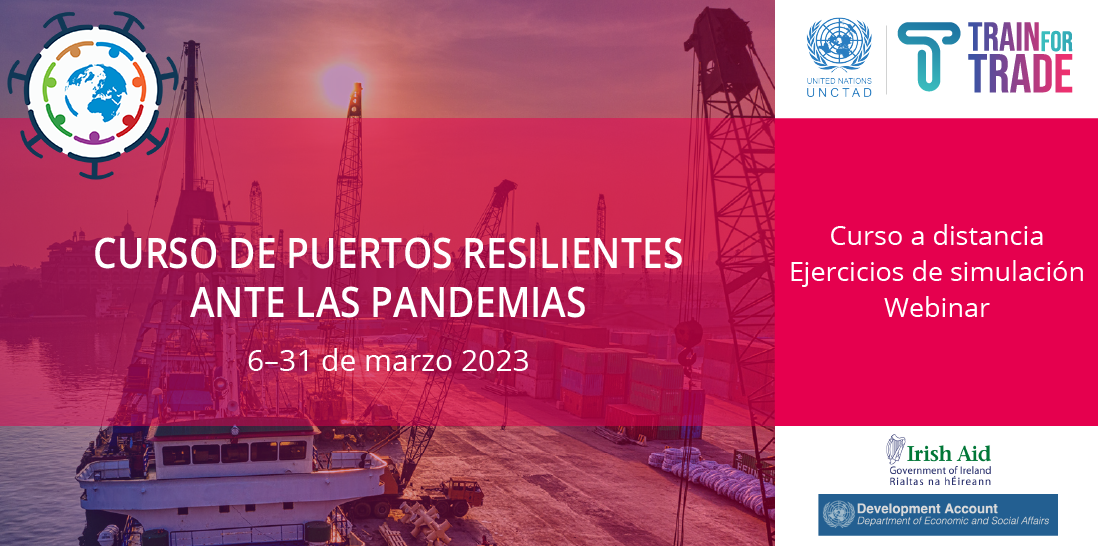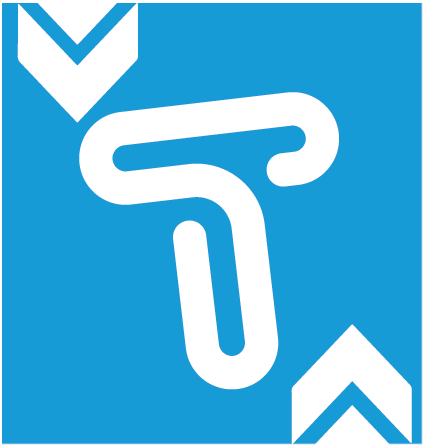Curso de Puertos Resilientes ante las Pandemias

- Este evento ha pasado.
Curso de Puertos Resilientes ante las Pandemias
marzo 6, 2023 – marzo 31, 2023 UTC+0

Objetivo
El objetivo del curso de Puertos Resilientes ante las Pandemias de la UNCTAD/TRAINFORTRADE es apoyar y preparar la aplicación de medidas para paliar las contingencias relacionadas con una pandemia en una comunidad portuaria.
Más concretamente, al finalizar el curso, se podrá:
- Describir y preparar protocolos de crisis
- Preparar estrategias de comunicación y aplicar herramientas de comunicación digital eficaces
- Apreciar los impactos potenciales de las pandemias en el bienestar del personal y abordar problemas relacionados con la angustia y estrés
- Identificar soluciones tecnológicas apropiadas para modalidades de trabajo alternativos
- Evaluar los escenarios de interrupción de la carga y los pasajeros
- Identificar los riesgos legales y financieros
- Definir las medidas de mitigación adecuadas
Población objetivo
El curso está dirigido al conjunto de actores implicados en el comercio internacional, especialmente a las personas relacionados con las operaciones portuarias. La población objetivo primaria y secundaria del curso son los/las representantes de las siguientes organizaciones:
Población objetivo principal:
- Autoridades portuarias (mandos intermedios y superiores)
- Empresas privadas de gestión portuaria
- Personal de la comunidad portuaria (transitarios, transportistas, agentes de aduanas y agentes de buques, etc.-)
- Agentes portuarios (personal de prácticos y capitanías de puerto)
- Personal de los ministerios competentes: Ministerio de Transportes, Ministerio de Sanidad, Ministerio de Comercio
Población objetivo secundaria:
- Comités de facilitación del comercio
- Funcionarios del cuerpo de seguridad portuaria
- Sindicatos
- Estibadores
- Autoridades locales
Inscripción
La fecha límite de inscripción es el 27 de febrero 2023, vía la plataforma de TRAINFORTRADE (https://tft-reg.unctad.org). La clave de acceso: BPR2023ES


